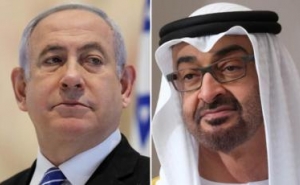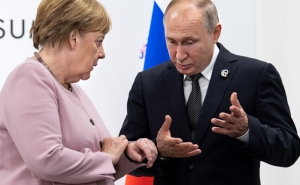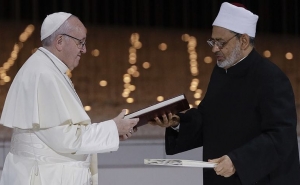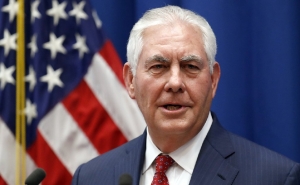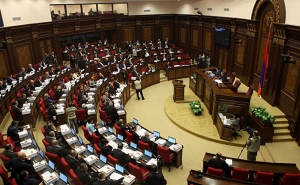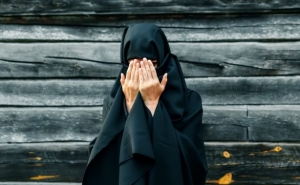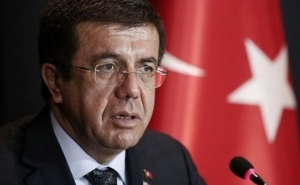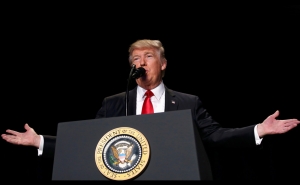"Yelk" Alliance and Their Foreign Policy Priorities: An Interview with Edmon Marukyan (EXCLUSIVE)
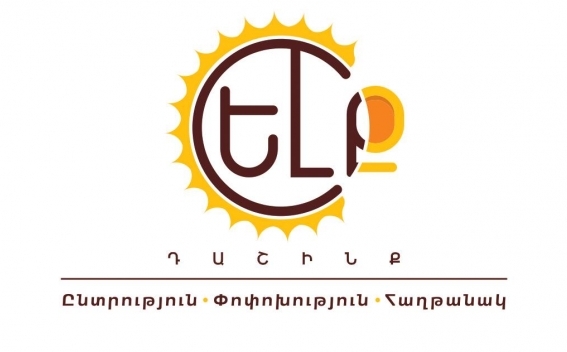
As a result of April 2 Parliamentary elections of the RA 4 political forces will enter the RA National Assembly. These forces will define the foreign political course of the country. "Armedia" IAA presents interviews with the representatives of political forces conducted during the campaign on their foreign policy priorities.
"Armedia’’ IAA presents an exclusive interview with the leader of the "Yelk" alliance, the leader of the "Lusavor Hayastan" party, the deputy of the RA National Assembly, Edmon Marukyan.
- Mr. Marukyan, will you, please, name the three main priorities of the foreign policy directions of your political power?
- In the program of our alliance, the foreign policy priorities are not marked as such, but I can highlight to what we attach great importance. The first one is our approach concerning the settlement of Karabakh conflict, the axis of which is strong Armenia. We affirm that the settlement of this problem, under the new Constitution of Artsakh, should not be the subject of discussions in the context of concessions, and we insist that in Azerbaijan, on the part of any political force, any political figure, and a representative of power there is no question of concessions. We think that the pro-Armenian solution of the Karabakh problem lies in the development of the Armenian economy, the development of the state of Armenia and in restoring the violated military and political equilibrium between Armenia and Azerbaijan. Until this balance is restored, until the state of Armenia is strong enough, we do not imagine any pro-Armenian solution to the Karabakh problem, and there can be no concessions either in our program or in our rhetoric.
The second direction is an interrupted European integration. It is known that after the adoption of the declaration on independence, Armenia began European integration, the foundations of which are laid down in the Declaration of Independence of the Republic of Armenia. In 2001, Armenia, having accepted the jurisdiction of the European Court of Justice, ratified the Council of Europe's human rights documents, becoming a member of the Council of Europe and continued European integration until 2013, when negotiations on the Association Agreement , Deep and Comprehensive Free Trade Agreement had been going on for four years.
In the program of the "Yelk" alliance, it is noted in a separate paragraph that in case of coming to power, the alliance will resume negotiations with the European Union on the Association Agreement and the DCFTA.
The third direction is connected with closer neighbors, specifically, with the countries of the EAEU, with Armenia-EAEU and Armenia-CSTO relations. In the trade and economic context, we declare that membership to the Eurasian Economic Union does not come from Armenia's national interests and this membership, in fact, has damaged the development of our state's economy and the process of pro-Armenian solution of Karabakh problem. The direction associated with the CSTO is a direction related to external security and the Alliance supports the idea that in order to ensure external security, we should find alternatives to the CSTO. With this, we affirm and declare that the current external security system of the RA does not satisfy us and does not provide Armenia's external security, and it also contains numerous challenges. In the context of the above mentioned, we declare that, in case of coming to power, we will begin searching for alternatives to external security. From the point of view of foreign policy discourse, I consider it important to single out the above-mentioned three areas.
- What is your position on Karabakh conflict settlement process?
- The past twenty years should have been used to strengthen the power of Armenia, its military and political forces and to stabilize, in case of which there could not be negotiations on unilateral concessions, there could not be such discussions in Armenia that "Let us concede some lands and receive peace in return’’ etc. We think that the current process of settlement cannot satisfy us at all, it cannot be an instrument of settlement, and this is the reason that we say that there can be no talks on mutual concessions. The resolution of the Karabakh problem, in fact, lies in Armenia itself, and one should not look for it in any other places.
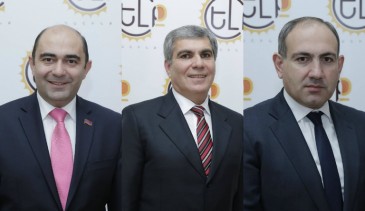
- Do you consider it possible to restore the Armenian-Turkish relations in the near future? What is the key to progress in this direction? And what steps should be taken for the international recognition of the Armenian Genocide?
- On this issue, we have a clearly fixed concrete point, and we affirm that the thesis existing until today, that is the restoration of the Armenian-Turkish relations without any preconditions, should remain on the agenda, but remain on the active agenda. We think that the absence of any steps in the current Armenian-Turkish relations, or the freezing of these relations (since, after the protocols no steps have been taken) is also connected with the leaders of two countries, in other words, it is a matter of leadership. And if it is changed, then the new political forces can be able to achieve a settlement in this direction.
As for the Armenian Genocide, since it is undoubtedly the most lobbied issue for the whole Armenian nation, we did not devote separate chapters to it in our program. We think that in the processes of international coverage and recognition of the issue, the legal mechanisms were not sufficiently used. In terms of promoting the issue, we worked only in the framework of public diplomacy, for example, in the form of adoption of resolutions in parliaments, but we did not use Turkish courts to begin the process inside Turkey and then bring them to the ECHR. In the sense of what has been said, we have much to learn from the Greeks, Yezidis, who constantly challenge Turkey in the European Court. In case of coming to power, we should make efforts in direction of wide coverage of the process of international recognition of the Genocide. We should work more in the legal direction.
- What is your approach towards Armenia’s integration processes? How do you see the development of Armenia's bilateral relations with the US, the Russian Federation, Georgia and Iran, and with individual European countries?
- The Alliance's program stipulates that we are supporters of maintaining mutually beneficial, good-neighborly and developing relations with our neighboring countries: Georgia, Iran, and also with the United States, the Russian Federation, China, India, and with the individual EU countries as well. In this respect we do not make a difference between them.
In connection with Iran, we have separate approaches. Armenia should be able to use Iranian gas and become a transit country for Iranian gas. There is a separate point in our program on this issue. In terms of cooperation with the EU, as I already said, we are going to resume negotiations on the Association Agreement and the DCFTA. The negotiations concluded in Brussels linked to a framework agreement, the text of which we do not know, is a rather weak document, which will never be able to replace the Association Agreement, and the Deep and Comprehensive Free Trade Agreement, in particular.
- What are your political force’s views on regional security issues?
- We think that the region needs democratization, since there is a matter of predictability in the region. In the same context of the Armenian-Azerbaijani relations, no negotiations or agreements can be strong enough when you are dealing with a state where the president and his wife are the first persons in the country and where the regular army fights under the laws of the IS terrorist organization. These circumstances remind us that the solution of the very Karabakh problem and other turbulent issues depend on the democratization of the region. In terms of the above said, the regional security is very unstable for us, and we think that there is a need for a process of democratization at the regional level.
- How do you see the development of the Armenia-Diaspora cooperation? What should be the priorities of the overall agenda of this relationship?
- In order to raise the role of Diaspora through constitutional reforms, we should make them participants, for example, in creating an body, a ministry responsible for the resettlement of Armenians to their homeland, as well as for the investments of Diaspora. And the head of this body will be appointed by the structure organized by the Diaspora at the parliament. We do have such an idea in our program and with the help of it we are trying to bring Armenia-Diaspora relations to a higher level, and not just act as a "beggar of money" and use the human resources of the Diaspora. We also wish to introduce one more important provision. Under the new Constitution, as it is known, a person who has been the citizen of the Republic of Armenia for the last four years and is permanently residing in Armenia can be appointed as a minister. It is understandable in terms of citizenship, but the qualification of a permanent residence, we think must be lifted, since it closes the doors to the figures of Diaspora, in terms of playing any role in Armenia. By this we do not allow people to work in Armenia, for example, as a minister. Imagine, if we have a government that wants to invite well-known specialists from the Diaspora, who can work here as ministers, leaving their lives and their high salaries in Diaspora, etc., but the Constitution does not allow them. In respect with Armenia-Diaspora cooperation, we will do our best to make Armenia a country of ten million Armenians. It is not just about all Armenians living here, but also about their identification with Armenia. A person living in Sydney must somehow feel part of Armenia and be an Armenian. From the point of view of preserving the Armenian identity, our compatriots from the Diaspora should receive such a message and resource from Armenia, which would mean that only if it exists and develops, their children will be able to keep Armenian identity in themselves.
- What are your approaches to the processes that are ongoing in the Middle East and the policy of Armenia towards them?
- There is no need to exaggerate Armenia's role in the Middle East and to say that we can play any role there. There is simply a question of Armenian communities where it is impossible to preserve Armenian culture and Armenians. We must be able to bring at least an Armenian resource and capital to Armenia so that it does not all fade into dust, which mostly took place in Syria, and before that to a certain extent in Iraq. I myself was in Latakia during the seizure of Qesab and I got to know all of this on the spot and understood what the task before us really means, and in general, what role can we play as a state.
Other materials on this subject
- RA President: Armenia Has No Longer Individual-Centered Government Our people witnessed the advantage of it, after the election, when for the first time in the history people did not gather and say they would make a revolution.
- The New Parliament Will Carry Out Multi-Vector and Balanced Foreign Policy In regard with Karabakh conflict, the new Parliament will have a joint approach – to resolve the conflict through peaceful negotiations. Nevertheless, in the approaches of the 4 political forces there...
- Post-Election Armenia: Changes Are Recorded in the Political Culture These elections were obsereved by an unprecedented number of observers, including both international observers and local ones, as well as our compatriots from Diaspora. This means that more representatives...
- Only 1.65% of the Armenian Voters Expressed Themselves in Favor of Great Concessions on Karabakh Issue It should be mentioned that the least votes received the approach adopted by "Congress-PPA" party, which supposed great concessions. Instead, the voters supported the settlement of the conflict with negotiations...
- What Relations with the Diaspora Did the RA Citizens Choose? Armenian Revolutionary Federation, which received 103,48 votes, thinks that the Armenian Diaspora should be fully integrated in the development of Armenian statehood.
-
 17:08
17:08The regular session of the Anti-corruption Policy Council takes place in Jermuk
-
 15:05
15:05The Prime Minister sends congratulatory messages to the supreme leader of Iran and the President of Iran
-
 11:11
11:11Armenia sends earthquake aid to Turkey
-
 10:43
10:43Commemoration of the Pontiff St. Sahak Partev
-
 09:16
09:16Some roads are closed and difficult to pass in Armenia
-
 19:55
19:55Phone conversation of the Foreign Minister of Armenia with the U.S. Assistant Secretary of State for European and Eurasian Affairs
-
 18:30
18:30Prime Minister Pashinyan and President Khachaturyan meet
-
 18:20
18:20Ararat Mirzoyan with Co-Chairman of the OSCE Minsk Group of France Brice Roquefeuil
-
 17:01
17:01Humans could land on Mars within 10 years, Musk predicts
-
 16:45
16:45France, US urge 'immediate' end to Nagorno Karabakh blockade
-
 16:01
16:01Blockaded Nagorno Karabakh launches fundraiser to support quake-hit Syria
-
 15:59
15:59Earthquake death toll in Turkey rises to 18,342
-
 15:43
15:43Ararat Mirzoyan Held a Telephone Conversation with Sergey Lavrov
-
 15:06
15:06French president rules out fighter jet supplies to Ukraine in near future
-
 14:47
14:475 Day Weather Forecast in Armenia
-
 14:44
14:44President Vahagn Khachaturyan wrote a note in the book of condolences opened in the Embassy of Syria in Armenia
-
 14:20
14:20Azerbaijan’s provocations impede establishment of peace and stability – Armenian FM tells Russian Co-Chair of OSCE MG
-
 12:57
12:57France representation to OSCE: Paris calls on Azerbaijan to restore freedom of movement through Lachin corridor
-
 11:40
11:40Command of Kosovo forces highly appreciated preparation of Armenian peacekeepers
-
 10:16
10:16The United States withdrew from sanctions against Syria for six months the provision of assistance after the earthquake
day
week
month
Humidity: %
Wind: km/h


